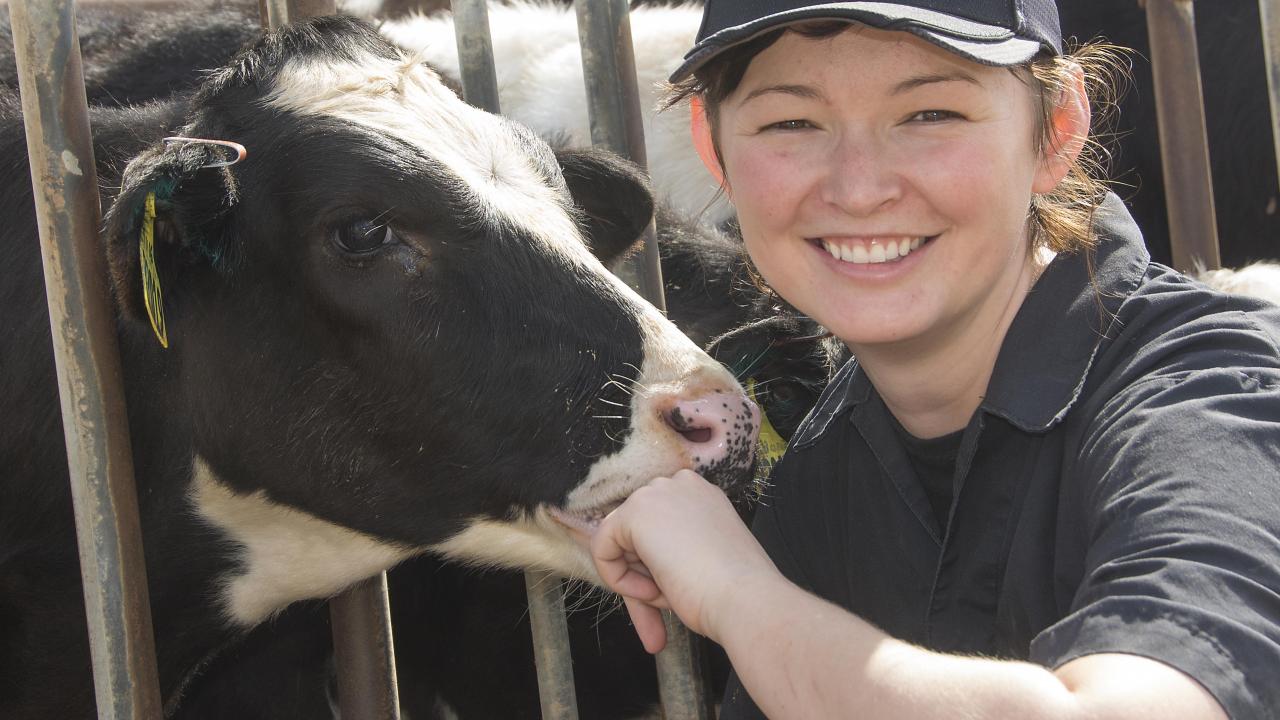
Training the Next Generation of Livestock Veterinarians
This article originally appeared in California Veterinarian magazine.
As the world population grows, so too does the need for more veterinary students trained in livestock medicine. Veterinarians like Hannah MacDonald (pictured), a 2017 graduate of UC Davis, who care for dairy cows, beef cattle, swine, poultry, sheep and goats, will be on the front line of protecting the nation’s food supply by ensuring the health of animals in these industries.
MacDonald grew up in northern California, in a small Native American community where she rode as a cattle hand for a nearby beef operation. She also participated in several international service trips in Mexico and India where she saw a strong need for herd health.
“In some communities, families put the health of the cow before themselves because of their economic dependence on the animal,” she said. “Those experiences really opened my eyes to the need for proper veterinary care.”
After learning more about the industry in veterinary school, MacDonald decided to specialize in livestock medicine. During her clinical rotation in Dairy Production Medicine at the Veterinary Medicine Teaching and Research Center (VMTRC) in Tulare, she learned that herd health is key —preventing one sick animal from affecting others.
Keeping livestock and poultry healthy is critical in preventing the rise of antibiotic-resistant infections that kill more than 23,000 people each year in this country. Veterinary students receive diagnostic training to identify sick animals promptly to prevent disease outbreaks and decrease dependence on antibiotics.
In addition to the VMTRC rotation, livestock students rotate through two clinical services—Livestock Medicine and Surgery Service and the Livestock Herd Health and Reproduction Service—based at the veterinary hospital in Davis. While rotating on the three livestock services, students work alongside faculty members and residents. In the veterinary hospital, they gain practical hands-on experience in medicine and surgery of client-owned cows, sheep, goats and pigs; learn how to perform routine procedures, such as castrations, dehorning, and hoof trimming; and obstetrics and surgeries, such as displaced abomasum surgeries and caesarian sections.
During the Livestock Herd Health and Reproduction Service rotation, students receive training about herd/flock reproduction, bull management and reproduction, milk quality, infectious disease prevention and control, calving/lambing/kidding management, calf/lamb/kid health, nutrition and other health-related issues. The Dairy Production Medicine Service rotation provides opportunities for herd health work on large sized dairies typical of California’s Central Valley. In addition to these rotations, livestock students must also work with private practice veterinarians. Combined, all of these clinical experiences give livestock students at UC Davis a well-rounded education that helps them to become competent veterinarians when they graduate.
